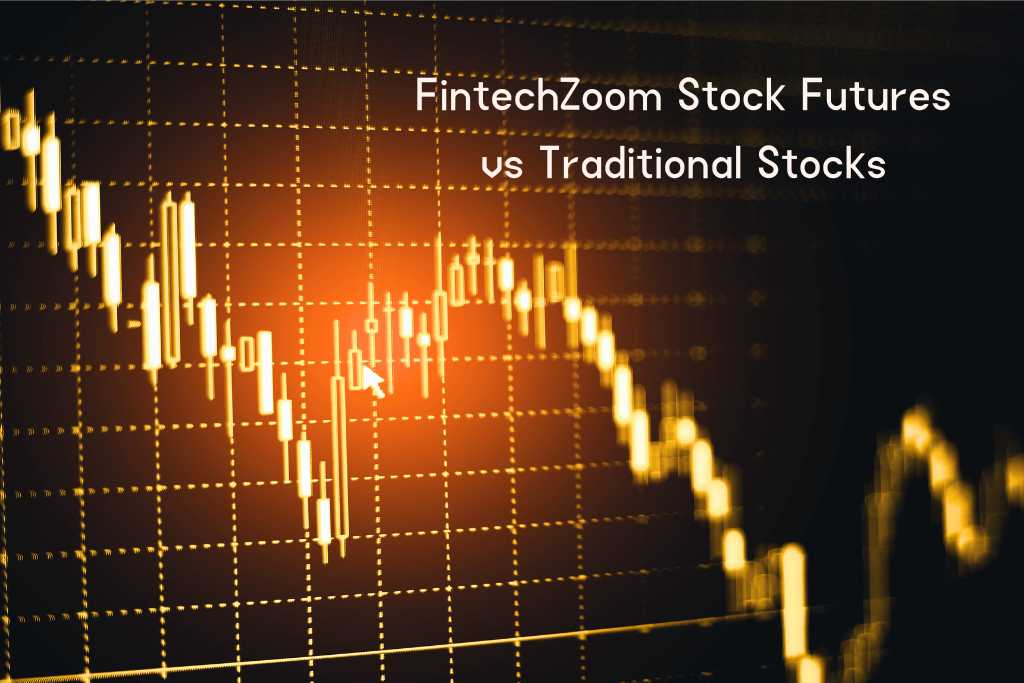Investing in the stock market is one of the most popular ways to grow wealth, but with so many options available, it can be difficult to decide which strategy is best for you. Two common investment options are FintechZoom stock futures and traditional stocks. While both can be lucrative, they operate under different principles, come with varying risks, and are suited to different types of investors.
In this article, we will delve into the key differences between FintechZoom stock futures and traditional stocks, helping you determine which one is better aligned with your financial goals.
Table of Contents
What Are FintechZoom Stock Futures?
Before we can fully explore the differences, it’s essential to understand what FintechZoom stock futures are. A stock future is a contract agreement to buy or sell a particular stock at a predetermined price at a specific future date. These contracts are used by investors and traders to speculate on the direction of stock prices without owning the actual shares.
FintechZoom stock futures are a modern variation of traditional stock futures, specifically offered through the FintechZoom platform. They are used by investors who want to hedge risks or maximize profit by predicting whether stock prices will rise or fall. These futures contracts are highly leveraged, which means they offer significant profit potential but also substantial risk. Unlike traditional stocks, stock futures can be traded with a smaller initial investment due to the leverage offered by brokers.
Traditional Stocks Explained
Traditional stocks represent ownership in a company. When you buy a stock, you own a piece of the company, entitling you to a share of its profits through dividends and capital appreciation. Stocks are traded on exchanges like the New York Stock Exchange (NYSE) and NASDAQ, and their prices are determined by the supply and demand dynamics in the market. Stockholders can hold their shares for the long term, reaping the benefits of the company’s growth, or trade them for short-term profits.
While stock prices can fluctuate, leading to potential losses, the maximum risk is limited to the amount invested. Unlike futures, there is no predetermined expiry date for stocks, allowing for a more flexible investment horizon.
Key Differences Between FintechZoom Stock Futures and Traditional Stocks
1. Ownership
One of the most notable differences between FintechZoom stock futures and traditional stocks is ownership. When you purchase a stock, you own a portion of the company, giving you the right to vote on company matters and potentially receive dividends. In contrast, FintechZoom stock futures do not involve ownership of the underlying asset. Instead, you are trading contracts based on the future price of the stock, with the primary goal being profit from price movements rather than long-term company growth.
2. Leverage and Margin
FintechZoom stock futures offer high leverage, allowing you to manage a significant position with a relatively small investment. This allows for the potential of significant profits if the price moves in your favour, but also exposes you to considerable risk if the market moves against you. Traditional stocks, on the other hand, are typically not traded with leverage unless you use margin accounts. Even in margin trading, the leverage is significantly lower compared to FintechZoom stock futures.
This leverage factor makes FintechZoom stock futures more suitable for experienced traders who are comfortable with high-risk investments, while traditional stocks are more suited to conservative investors.
3. Time Horizon and Expiry Dates
Another key difference is the time horizon. FintechZoom stock futures contracts have a fixed expiry date, which means they must be settled by that date. This creates a sense of urgency for traders, as they need to predict price movements within a limited timeframe. Not closing or rolling over the contract before it expires could lead to substantial losses.
In contrast, traditional stocks do not have an expiry date. Investors can hold onto their shares indefinitely, allowing for long-term strategies such as buy-and-hold investing. This makes traditional stocks more attractive to investors with a longer time horizon and a lower tolerance for volatility.
4. Risk Exposure
Both FintechZoom stock futures and traditional stocks carry risk, but the nature of that risk differs. Futures trading carries significant risk because leverage can amplify both profits and losses. If the market moves against your position, particularly with FintechZoom stock futures, you may lose more than your initial investment. Traditional stocks, however, have limited downside risk, your losses are generally capped at the amount you invested.
Additionally, because FintechZoom stock futures contracts are typically settled in cash, the trader never actually takes possession of the stock, meaning there’s no protection from dividends or company growth.
5. Costs and Fees
Both FintechZoom stock futures and traditional stocks come with their own set of costs. When trading FintechZoom stock futures, you may incur costs such as commissions, spread fees, and financing costs due to leverage. These fees can accumulate quickly, especially in a high-frequency trading environment.
For traditional stockholders, costs are usually lower and include broker commissions and potential taxes on dividends or capital gains. Long-term stockholders often pay fewer fees compared to frequent traders of FintechZoom stock futures, making traditional stocks a more cost-effective option for long-term investors.
6. Market Hours and Liquidity
FintechZoom stock futures are often traded on specific exchanges with extended market hours, allowing for almost 24-hour trading. This means that traders can react to market-moving events around the clock. However, this also increases exposure to after-hours volatility, which can make futures trading more unpredictable.
Traditional stocks, on the other hand, are mostly traded during regular exchange hours (9:30 AM to 4:00 PM ET in the case of the U.S. markets). Although some stocks offer after-hours trading, liquidity tends to be lower, and prices can be more volatile.
7. Volatility and Market Sensitivity
Due to their short-term nature and leverage, FintechZoom stock futures tend to be more volatile than traditional stocks. Futures contracts are sensitive to even small price movements in the underlying asset, which can result in large percentage swings in profit or loss. This makes them appealing to traders looking for quick gains but also significantly increases the potential for loss.
In contrast, traditional stocks tend to be less volatile, especially for large, stable companies. While stock prices can fluctuate, the longer time horizon associated with stock ownership helps smooth out short-term market movements.
Which is Right for You?
The choice between FintechZoom stock futures and traditional stocks depends largely on your risk tolerance, investment goals, and time horizon. If you are a seasoned trader comfortable with high leverage, short-term trading, and higher risk, FintechZoom stock futures might offer the profit potential you are looking for. On the other hand, if you prefer to invest for the long term, take advantage of company growth, and avoid the volatility associated with leveraged products, traditional stocks might be the better option.
Conclusion
Both FintechZoom stock futures and traditional stocks offer unique advantages and challenges. FintechZoom stock futures provide opportunities for leveraged profits and flexibility in trading hours, but they come with higher risks due to volatility and leverage. Traditional stocks, while generally safer, offer the potential for steady, long-term growth and dividend income. Ultimately, your choice will depend on your individual financial goals, risk appetite, and investment strategy.
FAQs
What is the main advantage of trading FintechZoom stock futures?
The main advantage is the ability to leverage a smaller amount of capital to control larger positions, allowing for potentially higher profits in shorter timeframes.
Are traditional stocks less risky than FintechZoom stock futures?
Yes, traditional stocks are generally considered less risky because they don’t involve leverage, and your losses are limited to your initial investment.
Can I hold FintechZoom stock futures long-term?
No, FintechZoom stock futures have fixed expiration dates, meaning you must settle or roll over your position before the contract expires. Traditional stocks are more suitable for long-term holding.


